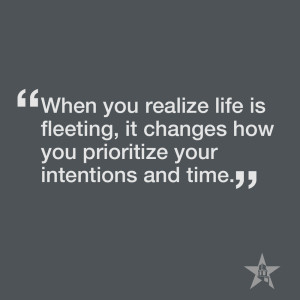Anyone who has been a college student or who is looking to enroll in college is familiar with the “kick in the gut” feeling that comes along when figuring out how to pay for such an endeavor. In the past, students had to apply for the FAFSA (Free Application Federal Student Aid), different types of state aid such as New York’s TAP (Tuition Assistance Program), and hope that scholarships or student loans would cover the rest.
For several years, students and legislators have pushed to make these daunting bills more affordable. New York State is now one of the first states to offer accessible higher education to all students. The Excelsior Scholarship, enshrined in this year’s state budget, aims to make the dream of pursuing a college degree more accessible for state residents.
 The scholarship offers to pay up to $5,500 minus any amounts from FAFSA, TAP or other scholarships toward tuition at any public New York schools, with any remaining tuition cost covered by an institutional tuition grant.
The scholarship offers to pay up to $5,500 minus any amounts from FAFSA, TAP or other scholarships toward tuition at any public New York schools, with any remaining tuition cost covered by an institutional tuition grant.
However, the Excelsior Scholarship does have several eligibility requirements. Students participating in the program must come from households within the state, with a total federal household adjusted income of less than $100,000. They must be enrolled in a minimum of 12 credits per semester and complete 30 credits a year. They must graduate in 4 years, and they must live in New York State for the number of years equal to how many years they received the award. If a student received the award for three years of college, they must live in New York for three years immediately following graduation. The Excelsior Scholarship also does not extend to any private colleges, and does not cover the cost of room and board or other student fees.
Failure to meet these requirements results in any award amount being converted into a loan that the student will need to repay.
This program, the first of its kind, has sparked conversations around the country and gained the support of many notable public figures outside the state. Vermont senator Bernie Sanders called the program “a revolutionary idea for higher education.” On the flip side, however, several groups have raised concerns over the post-graduation residency requirements, 30 credit hour minimum, and exclusion of private colleges and universities like Houghton. In an article for InsideHigherEd.com, Rick Seltzer wrote that several private institutions “have been critical of the free public tuition program or think it threatens their institutions’ futures.”
What are the long term implications of the Excelsior Scholarship? Will it truly benefit New York students? Will the program deter students from attending private institutions? Anyone connected to higher education has been asking these questions in the months since the idea was first proposed.
This year’s incoming first-year students were the first to have the option of the Excelsior scholarship on the table when deciding what institution to attend. When asked about the program, first-year student Ronnie Lott said, “My family was very close to qualifying for the Excelsior Scholarship. If we would have qualified for it, I probably would have ended up attending University of Buffalo. However, now if I was going through the process again, knowing all the information I do about the program now, it would not have impacted my decision to come to Houghton.” Lott also added that a few of his friends from high school who had opted to go to SUNY schools were now questioning whether or not they were saving money.
Another first-year student, Amy Romig, said that the Excelsior Program “Did not influence my search for colleges, because I don’t plan on living in New York when I graduate.” Several other first year students shared Lott and Roming’s sentiments about the program.
With regards to enrollment at Houghton, Rebekah Smith, Assistant Director of Admission, said, “In a lot of ways the jury is still out about it.” Adding that it is hard to quantify the number of students whose decisions were impacted by Excelsior because only a handful of potential students listed it as a deciding factor. Smith did say there was a notable decrease in transfer students from western New York community colleges into Houghton this fall in comparison to years prior, which may reflect some of the program’s initial effects.
The Excelsior Scholarship and the buzz surrounding it have certainly added a lot of dialogue about ways to improve access to higher education. For some students throughout the state it is an opportunity of a lifetime, while for others it raises serious concerns. Everyone can agree, however, that the impact of the program may take several years to fully understand.


 Grades are important. Having things like a stellar resume and a steady supply of internships are important. Landing a killer job after graduation, being successful, and paying off loans are important. However, if they are all I have when I leave college, my time would be a waste. Instead, I would be a robot who was efficient in taking the steps to be successful in life, but I would know no one. Relationships and connections are more valuable in the end. When you are 92 and in the hospital on your deathbed, who is going to be there with you? Your success, or the ones you have poured your life into?
Grades are important. Having things like a stellar resume and a steady supply of internships are important. Landing a killer job after graduation, being successful, and paying off loans are important. However, if they are all I have when I leave college, my time would be a waste. Instead, I would be a robot who was efficient in taking the steps to be successful in life, but I would know no one. Relationships and connections are more valuable in the end. When you are 92 and in the hospital on your deathbed, who is going to be there with you? Your success, or the ones you have poured your life into?